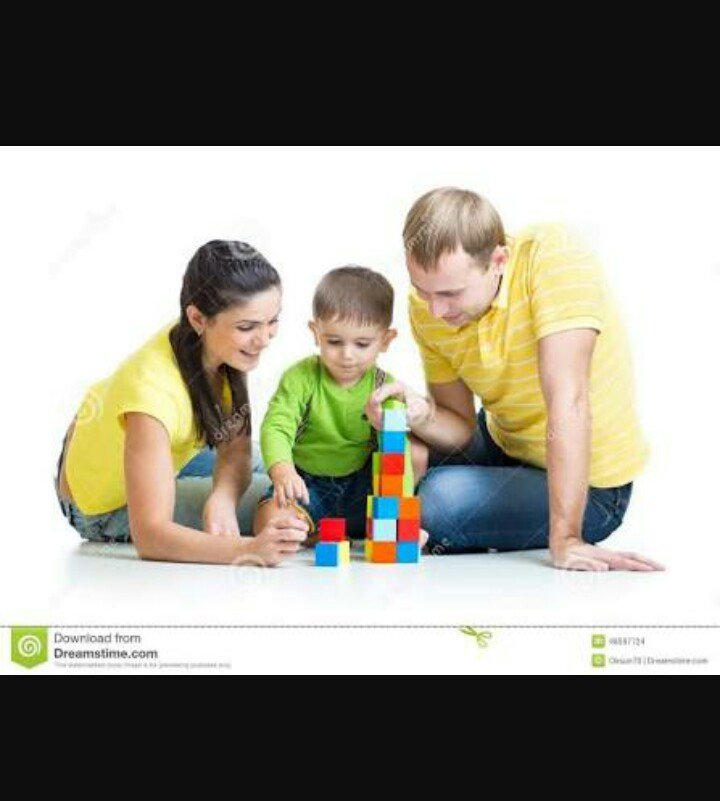**HOW TO RAISE RESPONSIBLE AND INDEPENDENT CHILDREN IN...
A "ME- FIRST WORLD"
EACH day presents people with numerous opportunities to do kind things for others. It may appear, though, that many think only of themselves. You see evidence of that nearly everywhere—from the shameless way people defraud others to the aggressive way they drive, from their crude language to their explosive tempers.
A me-first mentality also exists in many homes. For example, some spouses divorce simply because one partner feels that he or she “deserves better.”
Even some parents may unwittingly sow the seeds of a me-first spirit. How? By indulging their child’s every whim, while hesitating to administer any kind of discipline.This makes children to develop a Me- First Attitude.This can be adjusted by parents teaching their kids the following.....
(1)LEARN TO WORK BEFORE EARNING!
The problem: Researchers have noted a disturbing trend, Many young adults are entering the workforce with a marked sense of entitlement—an attitude in which they expect success, even if they have done little or nothing to earn it. Some just assume that they will be promoted quickly, even without mastering their trade. Others are convinced that they are special and deserve to be treated that way.
What is behind it: In some cases, children are being raised in Wealthy families. “Parents want to make their children happy, and children want stuff,” says the book The Narcissism Epidemic. “Thus parents buy them stuff. And children are happy, but only for a short period of time. Then they want even more stuff.”
The advertising industry too has been all too eager to exploit this hungry consumer market. It promotes such ideas as ‘You deserve the best’ and ‘Because you’re worth it.’ Many young adults have devoured the message and are now in debt, unable to pay for the things they “deserve.”
What you can do: Taking into account the maturity level of your children and allow them handle certain responsibilities can help. For instance If your son receives a traffic ticket, it might be best to let him pay the fine out of his allowance or salary.This will help him to know the importance of obeying laws.If your daughter fails a test, perhaps that should be a wake-up call to her so that next time she will be better prepared. If your son experiences the breakup of a romance, comfort him—but at the appropriate time help him to reflect on questions such as, ‘In hindsight, has this experience revealed any ways in which I need to grow?’ Children who work through their problems build resilience and self-confidence—assets they might lack if someone was constantly rescuing them.
(2)OVER PRAISING!
Over praising children simply to make them feel good may cause them to develop a distorted view of themselves.Don’t fail to correct your children! You won’t kill them by being firm.”
What To Do: Make it your goal to give correction when it is needed and commendation when it is genuinely deserved. Do not dole out praise just to make your children feel good about themselves. Likely, it will not work. “True self-confidence comes from honing your talents and learning things,” says the book Generation Me, “not from being told you’re great just because you exist.”
Many young adults entering the workforce seem ill-prepared to cope with adversity. Some are devastated by the slightest criticism. Others are finicky and will accept only work that meets their highest expectations. For example, in the book Escaping the Endless Adolescence, Dr. Joseph Allen tells of a young man who said to him during a job interview: “I get the sense that sometimes parts of the work can be a little boring, and I don’t want to be bored.” Dr. Allen writes: “He didn’t seem to understand that all jobs have some boring elements. How did one make it to apraisingy-three without knowing that?”
(3)LEARNING TO SPEND!
As a parent, examine your own attitude toward money and the things it can buy. Keep your priorities straight, and help your children to do the same. The Narcissism Epidemic, quoted earlier, suggests: “Parents and children can start discussions on such topics as ‘When is buying things on sale a good idea? When is it a bad idea?’ ‘What’s an interest rate?’ ‘When have you bought something because someone else thought you should?’”
Be careful not to use “stuff” as a drug to cover over family issues that need to be addressed. “Throwing material goods at problems is a notoriously unsuccessful solution,” says the book The Price of Privilege. “Problems need to be addressed with thought, insight, and empathy, not shoes and purses.”
I Hope These Points helped "Parents" and Fellow Steamians!
Thanks for Reading!
My special thanks goes to @ericvancewalton , @kiligirl and @lauralemons for thier kind support and inspiration through their write ups.
Image source-Dreamstime,Everyday family, The federalist, Edsys, 123RF





Awesome post @lisasblog!
Thanks Alot!